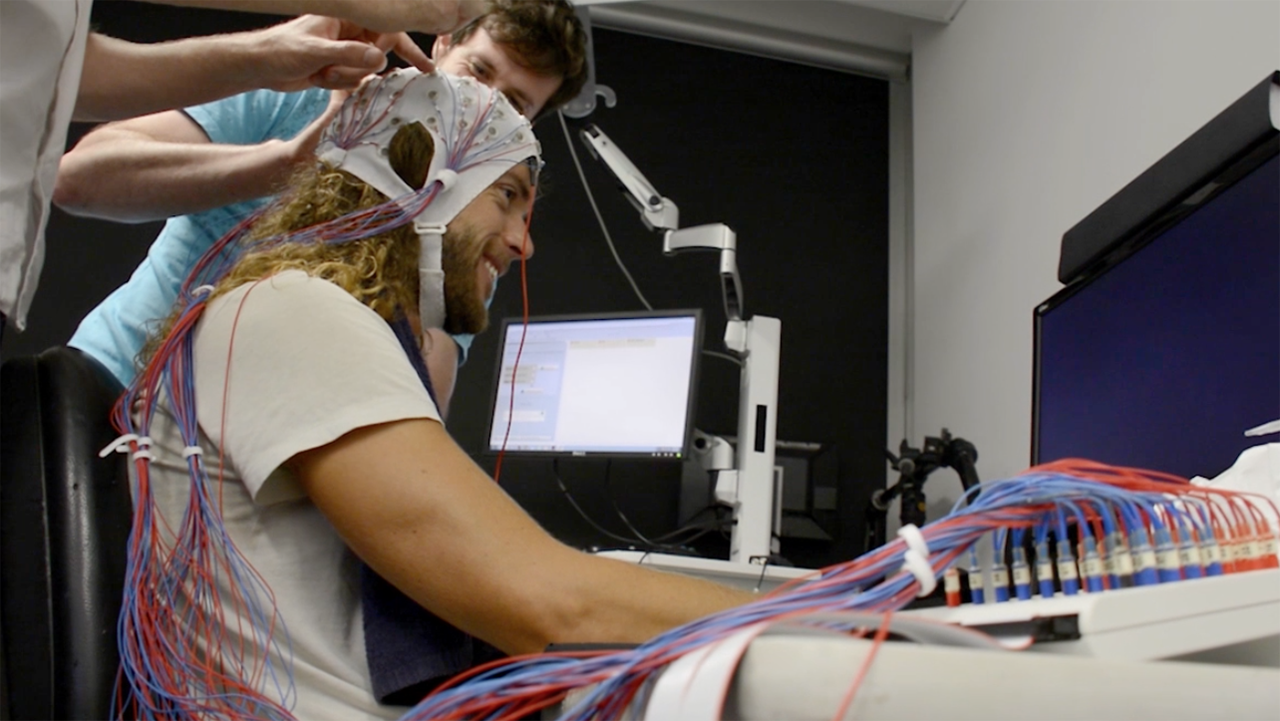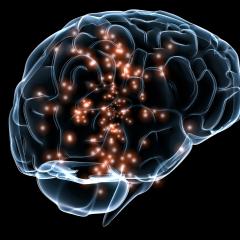
Researchers from The University of Queensland have shown for the first time that “brain training” for specific tasks can also improve broader brain performance, in findings with major implications for ageing brains.
The team from the Queensland Brain Institute and UQ’s School of Psychology studied the benefits of brain stimulation devices that deliver transcranial direct current stimulation (tDCS) via electrodes on the scalp.
QBI’s Professor Jason Mattingley said the findings could help in efforts to arrest cognitive decline associated with healthy ageing, or improve cognition in people with brain disease or injury.
Experiments applying tDCS to the left prefrontal cortex of the brain showed increased performance in both trained and untrained tasks.
“In the past decade the so-called 'brain training' revolution has grown into a multi-billion dollar industry, and there are thousands of online apps and programs that encourage people to exercise their brain to boost cognitive function,” Professor Mattingley said.
“There’s no doubt that repeatedly doing certain tasks improves performance on those tasks. It’s been much more difficult to prove any broader benefits for brain function, or help with untrained tasks,” he said. “This study is the first to show transfer of performance benefits to untrained cognitive operations with these types of tasks.”
Stimulation with brain training improved performance
In the study, led by UQ’s Dr Hannah Filmer, participants were trained in a decision-making task while they received active or sham brain stimulation.
The research team then used mathematical modelling to quantify any improved performance.
Participants were later re-tested, on both the trained task and an unrelated visual search task.
“The results have shown that performance on a simple decision-making task can be reliably improved after four sessions of training combined with stimulation designed to increase activity in the left prefrontal cortex,” Professor Mattingley said.
“Critically, we also found improved performance on an untrained task – a visual search they’d not performed before.
“What’s more, these generalised benefits were still evident a fortnight later.”
Professor Mattingley said the findings offered an important new direction for research into the neural basis of cognitive training.
“Although brain stimulation devices are now available commercially, we would not recommend people embark on 'do-it-yourself' brain stimulation at home. There are still many unknowns with these technologies,” Professor Mattingley said.
The research, published in Cerebral Cortex, was funded by the Australian Research Council.
Media: Jason Mattingley, j.mattingley@uq.edu.au; QBI Communications, communications@qbi.uq.edu.au.




